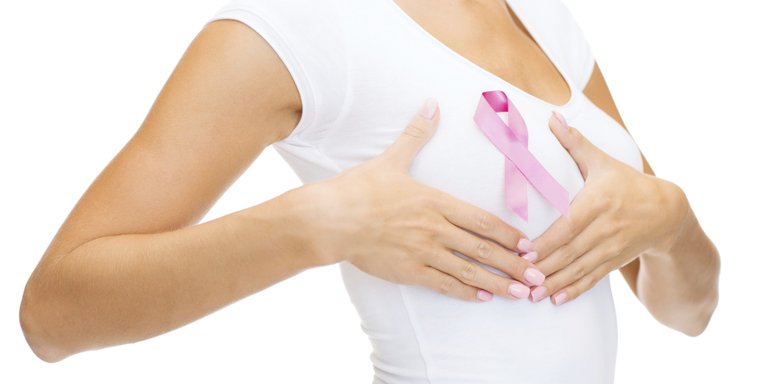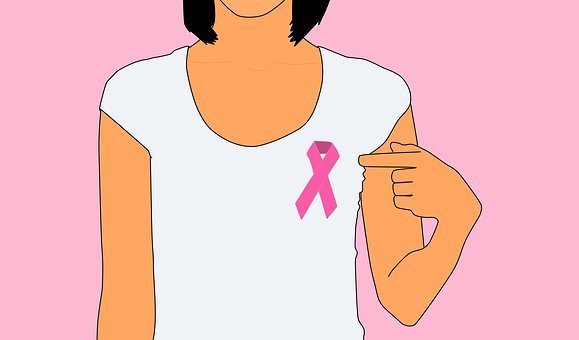Other possible symptoms of breast cancer include:
Swelling of all or part of a breast (even if no distinct lump is felt)
Skin irritation or dimpling.
Breast or nipple pain.
Nipple retraction (turning inward)
Redness, scaliness, or thickening of the nipple or breast skin.
Nipple discharge (other than breast milk
Can being pregnant cause breast cancer?
Pregnancy and breast cancer risk. Pregnancy is a time of breast development and hormone changes, so it is not surprising that it affects your breast cancer risk. However, this relationship is complex. Both the age when you give birth to your first child and the number of children you give birth to affect your risk.
How do you know if you have breast cancer?
Swelling or lumps around your collarbone or armpits can be caused by breast cancer that has spread to lymph nodes in those areas. The swelling may occur even before you can feel a lump in your breast, so if you have this symptom, be sure to see a doctor

Is all breast cancer hereditary?
Most cases of breast cancer are not caused by inherited genetic factors. These cancers are associated with somatic mutations in breast cells that are acquired during a person's lifetime, and they do not cluster in families. In hereditary breast cancer, the way that cancer risk is inherited depends on the gene involved.
How do you check for breast cancer?
Place your left hand on your hip and reach with your right hand to feel in the left armpit. Repeat on the other side. Check both sides for lumps or thickenings above and below your collarbone. With hands soapy, raise one arm behind your head to spread out the breast tissue.
Can you get cancer from being pregnant?
Pregnancy itself does not cause cancer, and pregnant women do not have an increased risk of developing cancer compared to women who are not pregnant. Some of the most common cancers diagnosed during pregnancy include: breast (the most common) cervical.
Is CAncer hereditary from parents?
Although this is often referred to as inherited cancer, what is inherited is the abnormal gene that can lead to cancer, not the cancer itself. ... Only about 5% to 10% of all cancers result directly from gene defects (called mutations) inherited from a parent

Is BReast CAncer inherited from mother or father?
Having a family history of breast or ovarian cancer in first-degree relatives on either side may be an indicator of an abnormal breast cancer gene and higher-than-average risk for breast or ovarian cancer. If your mother or father's family has a strong family history, you may want to consider BRCA1 and BRCA2 testing
Can a man get breast cancer?
Symptoms of breast cancer in men are similar to those in women. Most male breast cancers are diagnosed when a man discovers a lump on his chest. But unlike women, men tend to delay going to the doctor until they have more severe symptoms, like bleeding from the nipple. At that point the cancer may have already spread.
Can you pass cancer to your unborn child?
Leukaemia cells had crossed the placenta and spread from the 28-year-old mother to her unborn baby. There have been suspicions for years that cancer could be passed on in the womb. About 17 cases of suspected mother-to-child transmission have been noted – usually leukaemia or melanoma.
Fast facts on breast cancer:
Here are some key points about breast cancer. More detail is in the main article.
1.Breast cancer is the most common cancer among women.
2.Symptoms include a lump or thickening of the breast, and changes to the skin or the nipple.
3.Risk factors can be genetic, but some lifestyle factors, such as alcohol intake, make it more likely to happen.

How do you keep your breasts healthy?
- Exercise, exercise, exercise!
- Indulge in some chocolate.
- Don't lose it over a lump.
- Fill up on fruit and veggies.
- Drink less alcohol.
- Get a good night's sleep.
- Don't forget folic acid.
- Practice peace.
How can we overcome breast cancer?
Eat Your Fruits & Vegetables – and Avoid Too Much Alcohol. A healthy diet can help lower the risk of breast cancer. Try to eat a lot of fruits and vegetables and keep alcohol at moderate levels or lower (a drink a day or under)
How do I take care of my breast?
- When you touch your breasts, do so with respect and caring.
- Open yourself to receiving help, nourishment, and compassion from self and others.
- Minimize the time you wear your bra every day.
- Sweat it out.
- Eat a low-glycemic diet.
- Regular checks and screening can help detect symptoms early. Women should discuss their options with a doctor.